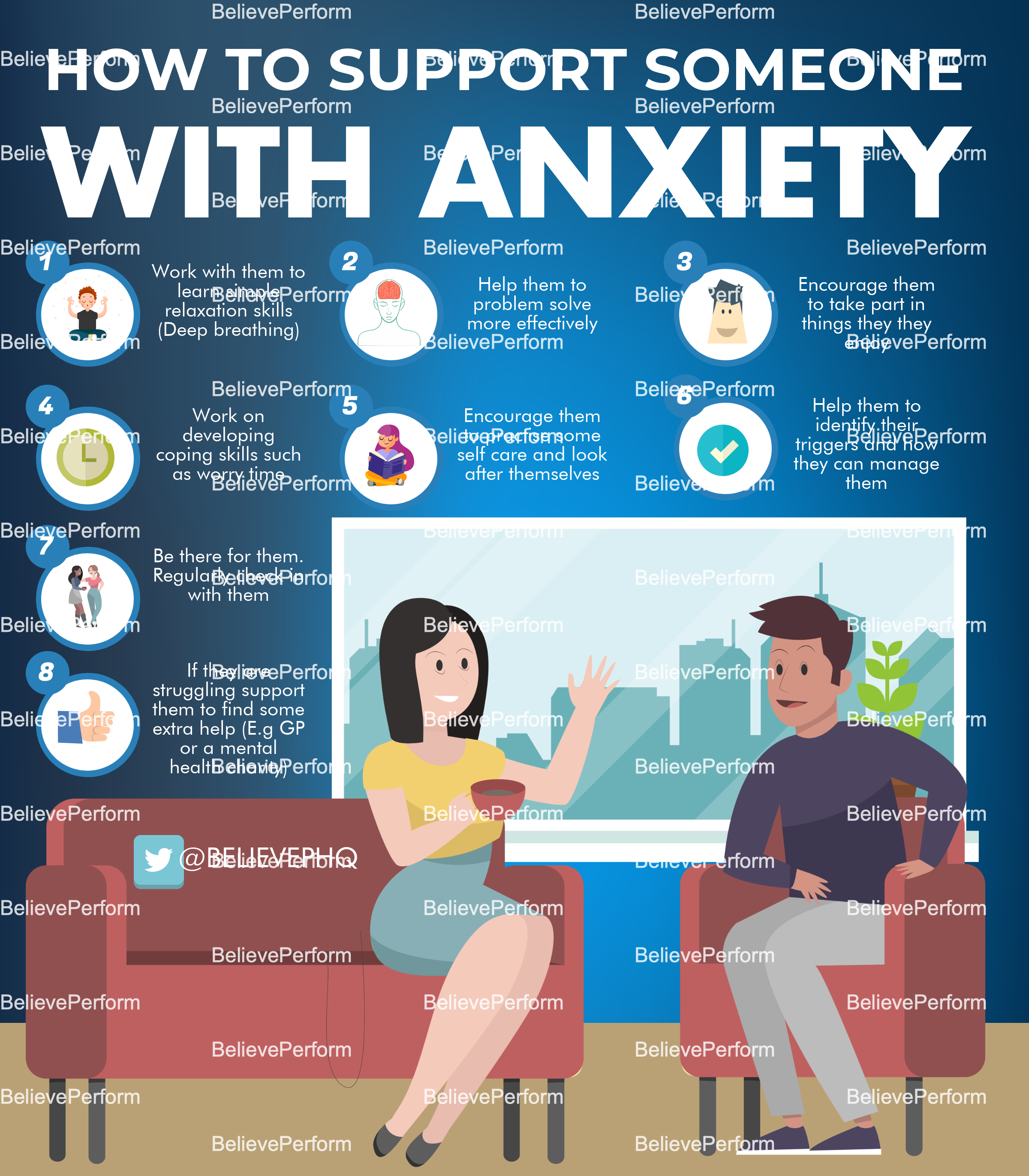Anxiety is a common experience that can be both distressing and debilitating. When it strikes, it can be challenging to cope with and can heavily impact one’s daily functioning. If you find yourself supporting a loved one or friend going through an anxiety attack through text, offering the right words and guidance can make a significant difference. Understanding what to text someone with an anxiety attack can effectively provide comfort and assist them in managing their symptoms.

Image: www.wikihow.com
Supporting During Panic: Understanding Anxiety Attacks
Anxiety attacks are sudden episodes of intense fear or discomfort that can often occur without warning or trigger. They are characterized by a range of physical and emotional symptoms, including increased heart rate, sweating, trembling, shortness of breath, and feelings of panic or impending doom. Understanding these symptoms can help you empathize and provide appropriate support.
Verbal Support: Texting to Calm the Storm
When texting someone experiencing an anxiety attack, aim for brief, reassuring messages that offer comfort and reduce their distress. Here’s what you could say:
- “I’m here for you, and I understand you’re going through a tough time.”
- “Remember, anxiety attacks eventually pass. This too shall pass.”
- “Take deep breaths with me. Inhale for four counts, hold for seven counts, exhale for eight counts.”
- “Try to focus on something calming, like a soothing image or a favorite song.”
- “If you need to distract yourself, share something funny or heartwarming.”
Practical Help: Guiding Them Through the Anxiety
In addition to words of comfort, offer practical guidance to help them cope with the anxiety:
- “Are you in a safe environment? If not, let’s find a better place.”
- “Do you want me to call someone else for support?”
- “Do you have any medication or techniques that usually help you calm down?”
- “If you’re comfortable, can you describe what you’re anxious about?”
- “Sometimes, writing down your thoughts or feelings can help process them.”

Image: mungfali.com
Remind Them of Resources
If the person you’re texting has sought professional help before, remind them of any coping mechanisms or resources they may have been given, such as:
- “Have you tried the relaxation exercises we learned in therapy?”
- “Do you have some grounding techniques you could try?”
- “If this anxiety is persistent, it might be helpful to reach out to your therapist or doctor.”
- “Emergency hotlines and crisis support websites offer immediate help if needed.”
- “Remember, you’re not alone in this. Professional counselors and support groups can provide further assistance.”
FAQs on Texting Support for Anxiety Attacks
Q: Is it better to text or call someone having an anxiety attack?
A: Texting can be less overwhelming and give them space to respond at their own pace. However, if you sense their distress is intensifying, a phone call might be more effective.
Q: What should I avoid saying to someone with anxiety?
A: Avoid dismissive or judgmental language. Instead of saying “calm down” or “it’s all in your head,” use empathetic and validating phrases.
Q: How long should I continue texting someone having an anxiety attack?
A: Stay connected until they indicate they’re feeling better or request space. Let them know you’re there if they need anything else later.
What To Say To Someone With Anxiety Attack Over Text
In Conclusion
Supporting someone through an anxiety attack over text may not be as immediate as in-person support, but it can still be meaningful. By choosing the right words, offering practical guidance, and reminding them of resources, you can help them navigate the challenging moments and reassure them that they’re not alone. Remember, anxiety attacks are temporary, but the impact of your support can last long after the attack subsides.
Are you struggling with anxiety and seeking support? Reach out to mental health professionals, support groups, or crisis hotlines for guidance and assistance. Knowledge and support can empower you in managing anxiety and living a fulfilling life.

/GettyImages-1303637-two-way-mirror-57126b585f9b588cc2ed8a7b-5b8ef296c9e77c0050809a9a.jpg?w=740&resize=740,414&ssl=1)



